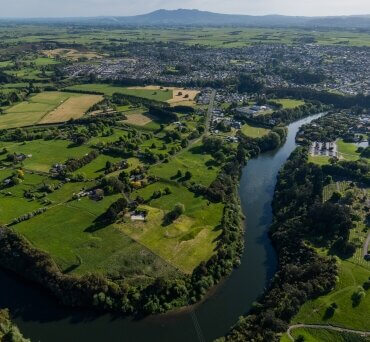
Waikato River.
Waikato Regional Council has made a submission on the Local Government (Electoral Legislation and Māori Wards and Māori Constituencies) Amendment Bill.

Stu Kneebone
It outlines concerns and recommendations regarding the proposed changes, with a focus on ensuring equitable and fair representation of Māori in local government.
For context, this council established two Māori wards in 2013, and since then two Māori councillors have been part of a diverse mix of 14 councillors. Councils are required to review representation arrangements every six years, and councillors elected in 2017 and 2023 to continue with Māori wards. It reaffirmed a commitment to recognising the value of having a Māori voice at the table.
The Local Government Act 2002 requires councils to provide opportunities for Māori to contribute to decision making processes. Waikato Regional Council has found having two Māori ward councillors at the table has proven to be an effective way of giving effect to this requirement.
The concept of Māori wards is not dissimilar to the situation at central government level where Māori electorates have existed since 1867. Despite those who choose to go on the Māori role being able to exercise a vote for their preferred Māori representative at a central government level for a very long time, it is only relatively recently that those on the Māori role have had this opportunity at a local government level. This is because they can only do this if their council has established a Māori ward.
Up until 2021, the process to establish Māori wards was challenging for local Councils. The law provided for any decision made by a council to establish Māori wards to be overturned. In essence, if a Council wanted to establish a Māori ward, five per cent of the voting public could trigger a binding poll amongst all electors. If 51 per cent of those responding to the poll didn’t support Māori wards, then council could not establish them. This provision was overturned in 2021.
The proposed Bill would require councils who have established Māori wards since 2020 to hold a binding poll at the 2025 local body elections if they had not already done so. This would mean 45 councils will be required to go back and hold a poll in 2025. If 51 per cent of those participating in the polls do not support Māori wards, those council will be required to disestablish them. This law would only apply to Māori wards, and not, for example, the establishment of a rural ward to represent rural interests.
Waikato Regional Council has submitted that reinstating these provisions is undemocratic because it imposes a higher procedural standard for establishing Māori wards. The submission noted that requiring referendums only for Māori wards undermined the fundamental concept of a fair electoral process, and the council’s obligations under the Local Govt Act to recognise and respect the Crown’s responsibility to consider the principles of the Treaty of Waitangi and maintain and improve opportunities for Māori to contribute to local government decision-making processes.
See: Waikato Regional Council submission








